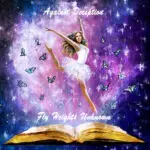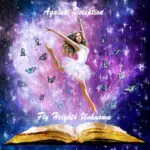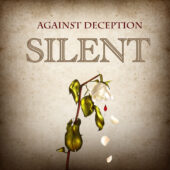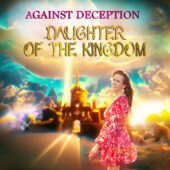This Is Your Brain on Christian Trance Songs
This Is Your Brain on Christian Trance Songs
Have you heard this song? If not, you should! The rhythmic sound is said to improve concentration and ecstasy. But is it religious ecstasy? And if so, does that make it better for your brain? Read on to find out. Here are some things to think about when listening to this music. It may not be religious ecstasy, but it’s definitely an experience.
Mind control by rhythmic sound
It has been reported that music can be used as a form of mind control, affecting the human brain. This effect is often attributed to music’s ability to tap into brain circuits that control emotions, movement, and sensory perception. Rhythmic sounds stimulate these areas, increasing decision-making abilities at precise points synchronized to the beat. Compression is also used to alter the loudness of pop music, boosting volume during quiet parts of the song while decreasing dynamic range.
Music that is a powerful inducer of hypnosis has long been known to influence human behavior. Researchers have linked rhythmic sound to different types of trance, from Mesmer to Satanic panic. Music can be used as a tool in religious ceremonies as a form of mind control, affecting the behavior of the individual through an altered state of consciousness. Music also induces relaxation, which can lead to hypnosism.
Dr. McElwain also describes the use of rhythmic sound by demons. Natives of Africa have been known to enter into a trance-like state when listening to drums. Similarly, Westerners consent to various forms of rock concerts where the demons enter and fill their bodies with strange sensations and sensual pleasures. But why do they do this?
Increases ecstasy
There are three ways to increase ecstasy when listening to trance music. During the trance phase, the user becomes energized and starts to sweat profusely. They may also begin to fight with each other and are beaten, but they do not feel pain until the next day. Lastly, the trance songs may increase ecstasy, but only in the short-term.
According to researchers, the hyphy phenomenon may be correlated with the music itself. Its salient features, such as “thizz,” are derived from the late hip-hop artist Mac Dre. The songs themselves also have textual descriptions that correlate with respondents’ reports of thizzing. This setting may provide means for drug users to interpret their subjective experiences. By identifying such lyrics, researchers can better understand how this music affects people.
Is it religious ecstasy?
Are you listening to Christian trance songs and experiencing the “Christmas spirit?” Then you may be asking yourself, Is it religious ecstasiness? What is religious ecstasy? It’s a trance-like state, often accompanied by hallucinations, visions, and physical euphoria. It lasts for about half an hour, but can also last for several days, according to some accounts.
In churches, ecstasy is associated with the Holy Other. Sexuality is often repressed, but not entirely avoided. Music is the catalyst, allowing people to step outside of themselves and experience self-transcendence. For those with an ecstatic experience, ecstasy is an encounter with the divine. And while Byrne’s Christian trance music may sound like “a religious trance song”, there’s no way to tell if it’s a Christian or not.
Whether the lyrics of Christian trance songs are based in Christian beliefs or not is debatable, but the lyrics seem to prove the point. There are songs that have no Christian content, but the lyrics of some Christian trance music are laced with mystical contentment. They are meant to be an invitation to religious ecstasy. So, the question remains, is it religious ecstasy?
Is it just music?
Just Music is a German expression meaning no pressure. Founder Alfred Harth chose the name to represent this idea, and it is no surprise that the group changed its name several times. The group worked at radio stations in Frankfurt, Germany, as well as the Hessischer Rundfunk in the Netherlands. Members included Alfred Harth, who played tenor sax, bass clarinet, trumpet, and voice.
Is it hypnotic?
The term hypnosis is used for many purposes, from entertainment to healing. Despite its vast application in the field of medicine, few researchers are in agreement about the exact definition of hypnosis. According to one definition, hypnosis is an altered state of attention, concentration, and inner absorption during which you are not aware of the outside world or any other stimuli. It is a similar mental state to that of a person who is deeply focused on something.
While a person under hypnosis will not experience physical pain, it can still have a significant impact on the brain. For example, hypnosis can decrease the need for powerful painkillers. In the US, overdoses of opioids kill around 130 people every day. And while hypnosis is not addictive, it does have a significant effect on the way the brain responds to pain.
Despite its broad application, hypnosis still has a reputation for being an unscientific, mystical technique. While some people believe it can improve physical pain, other researchers believe that hypnosis can be a useful treatment for psychosomatic disorders. The key is to understand how hypnosis works in the brain and how to use it. Researchers at Stanford University studied brain regions that are affected by hypnosis.
Is it addictive?
The etiology of addiction is complex, reflected by the frequent pendulum swings between opposing attitudes. It is debated whether addiction is a sin or a disease, and whether it should be treated morally or medically. It is often linked to the substance, the individual’s vulnerability, psychology, and social factors. And while it may sound like a cult, it is not a religion.






Comments
This post currently has no comments.